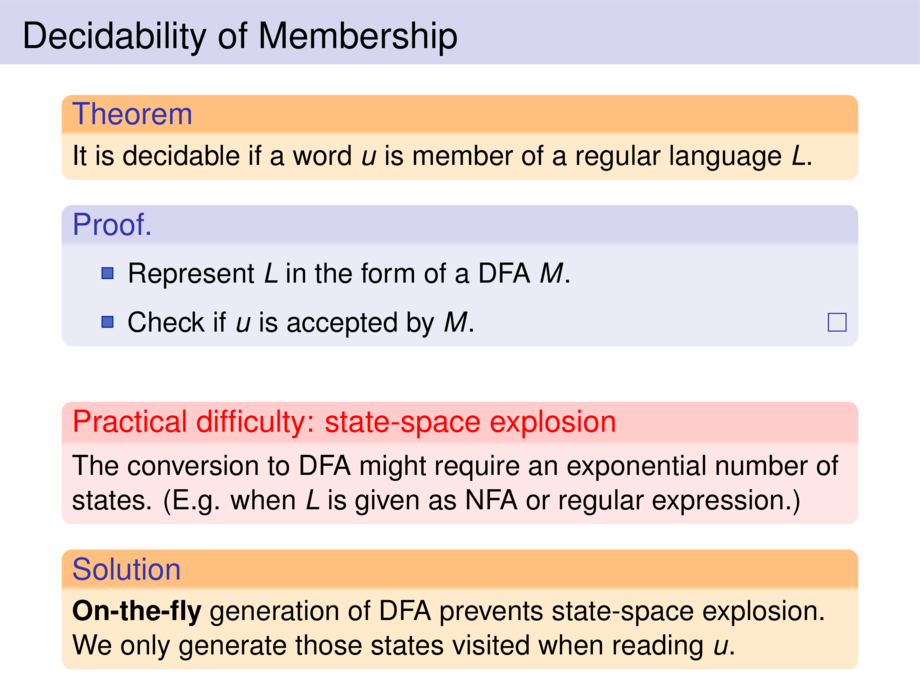



































































































26/35
\begin{frame}{Decidability of Membership}
\begin{goal}{Theorem}
It is decidable if a word $u$ is member of a regular language $L$.
\end{goal}
\pause
\begin{proof}
\begin{itemize}
\item Represent $L$ in the form of a DFA $M$.
\item Check if $u$ is accepted by $M$. \qedhere
\end{itemize}
\end{proof}
\pause\bigskip
\begin{alertblock}{Practical difficulty: state-space explosion}
The conversion to DFA might require an exponential number of states.
(E.g. when $L$ is given as NFA or regular expression.)
\end{alertblock}
\pause
\begin{goal}{Solution}
\emph{On-the-fly} generation of DFA prevents state-space explosion.
We only generate those states visited when reading $u$.
\end{goal}
\end{frame}

